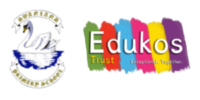Our Curriculum Vision
Our Curriculum Vision
You can find more information on the following areas:
Our Year Group Overviews and Whole School Subject Specific Curriculum.
Or to find out more about what your child is learning in class, please see the Class Pages.
Here you will find out about our approach to the curriculum.
At Swanland Primary School, our school values are:
We are Kind, We are Respectful, We are Proud and We do our best.
is an integral part of daily life. The everyday things that we do, such as Praise and Award assemblies, lunchtimes, playtimes, recognising and praising individual achievements, individual responsibilities, and a wide range of cross-curricular and curriculum enriching visits and visitors mean that the children at our school are encouraged to become caring, understanding and knowledgeable citizens. Social, Moral, Spiritual and Cultural development of the children at our school is woven into all we do. Through assemblies, whole school events, PSHCE lessons, circle time and across our whole curriculum, we value and provide opportunities for children to become good communicators, develop teamwork skills, make informed choices, be kind, caring and respectful of others. We encourage children to be active members of their community both locally, nationally and internationally through fundraising, planned curriculum, visits and visitors. The British Values of Democracy, Individual Liberty, Mutual Respect, Rule of Law and Tolerance of other faiths and beliefs are explicitly shared in assemblies, planned into PSHCE lessons and interwoven in all we do. Staff plan their curriculum carefully, react to current events and work restoratively to ensure children’s personal development and emotional wellbeing are at the forefront of all we do. Consequently, they are well equipped for the next stage of their education and to live life in the 21st century.
At Swanland Primary School we pride ourselves on the delivery of a curriculum that provides children with an enriching, diverse and stimulating education. Through carefully planned topics, themes and a variety of teaching styles, children receive a range of learning opportunities that will enable them to achieve the best possible progress and standards. In turn, this allows for all children to participate in learning which they enjoy. Swanland’s approach to curriculum delivery ensures that pupils are encouraged to use their learning across a range of subjects and where possible from a first-hand experience.
Our Curriculum intent is to develop the whole child through the 5 areas (Creative, Progressive, Challenging and Accessible to All, Develops Curiosity for Learning, Meaningful and Encourages Skill Application Across the Curriculum) which are listed below.
Please click on each area to find out more about our Intent for the Curriculum at Swanland School.
Our curriculum includes lots of hands on learning from Reception to Year 6. The curriculum is designed to have opportunities for art, music, drama, visits and visitors to make the children’s learning interesting and relevant. Teachers are allowed the flexibility to create a curriculum that is child centred and suitable to their interests and needs whilst still ensuring progression.
The curriculum is designed to build on prior knowledge and all teachers know the end point the children are working towards by the end of each academic year as set out in the school’s scheme of work and ultimately the final end point in Year 6. The curriculum is designed to be broad and balanced to ensure coverage across the school. Lessons are carefully planned to ensure that challenge is appropriate and subject leaders review the learning taking place to ensure progression. We are inclusive in all we do and all children are included in the lessons regardless of ability, as support and differentiation are used to ensure the best outcomes for all.
For our whole school Accessibility Plan, please see our Policies page.
Through well-planned, creative, and hands-on lessons, children at Swanland School develop a love of learning. The curriculum is designed to foster curiosity and a desire to find out more. Often, the children bring in artefacts and information that they have learnt at home because their imaginations have been captured. The curriculum is designed to encourage our children to be problem solvers, independent learners, communicators and leaders.
Where possible, the curriculum is designed to be hands on. In Science, investigations are planned and carried out, in history, visitors come to talk to the children and artefacts are handled, in literacy the children are given a purpose for their writing. These are just some examples of how the curriculum is made meaningful to the children.
We ensure that the substantive knowledge and disciplinary knowledge of subjects is learnt, embedded and developed across the school. This enables the children to make connections across their learning, in all subjects. For example, in Year 6 Science, children make connections to their Year 4 work, about the human body and the digestive system, when they focus on how nutrients and water are transported within animals including humans. Some subjects cannot be taught in this manner and they are planned to develop skills that can be applied in future learning as well as a broad knowledge. For example, in maths, the mastery approach is used to develop skills and problem-solving in this area. These skills are then applied across a range of subjects where appropriate. Children are reminded of the importance of maintaining high standards of the basic skills in all subjects, not just in literacy and maths lessons. This is also the case in reading, writing and spelling. Skills in these areas are developed and embedded across a range of lessons once they have been taught to the children.
